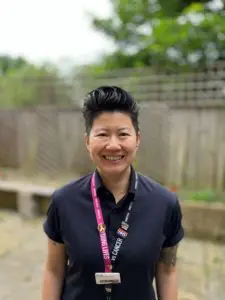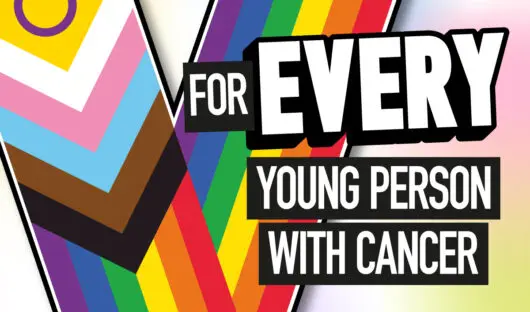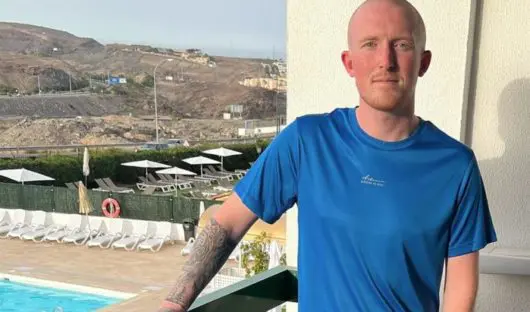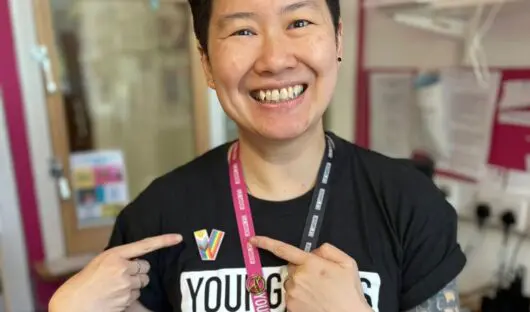What Pride means to our social workers
 In this blog, Young Lives vs Cancer Social Worker Lyn reflects on what Pride means for her and her work with children and young people facing cancer.
In this blog, Young Lives vs Cancer Social Worker Lyn reflects on what Pride means for her and her work with children and young people facing cancer.
It is tough being brave when you have cancer. As we know, cancer is completely indiscriminate. Cancer affects people of all ages, ethnicities, and sexualities. It does not judge, nor does it care who or how it impacts on the lives of those it touches. If only our young patients were afforded the same inclusiveness as the disease that has affected them. When it comes to diagnoses, treatment and care, our children, teenagers and young adults start to see differences in how they are spoken to and taken care of.
On the whole, the hospitals and organisations who support our children and young people and their families are really open and non-judgemental. However, we still live in a fairly heteronormative society (meaning our default perspective is always that of heterosexuality) and this is because for most of us, we have grown up with stories, music, movies and general media that portray heterosexuality as the norm, for example: storylines in the main are about heterosexual couples, or that the men wear suits and the women wear dresses. So when we come into contact with our young patients, sometimes slips are made, such as asking them about a respective boy- or girl-friend, or presume that they have a mother and a father (instead of two mothers, or two fathers, or any other combination of blended families that might exist).
Sometimes it is good to pause and reflect on how making assumptions like these might affect a young person, and if it might prevent them from sharing their truth and their stories with us. Speaking from personal experience, it is sometimes easier to allow another person to make their assumptions rather than correct them because I know it isn’t always easy to predict what a person’s response or reaction might be to a person’s sexual orientation or gender identity.
When I first saw a colleague wearing an NHS rainbow badge, I couldn’t ask fast enough how I could get one. I immediately recognised the opportunity that the badge would bring in my interactions with the families and young people, by identifying myself as an open and safe person to talk to about aspects of their care, or anything else. And slowly, there were soon other ways in which we could identify ourselves as being open to these conversations; by sharing our preferred pronouns, by asking them open questions about themselves that do not make any assumptions, and by inviting challenge and correction to anything we might say that is not accurate.
Having cancer and going through treatment is a scary enough experience without having to worry about what others might think of you, and every single LGBTQIA+ person has to essentially ‘come out’ to each new person they speak to at some point. Coming out is hard enough the first time, and often many times after that. I can’t imagine how difficult it would be to talk to a medical professional openly about my sexuality and my cancer diagnosis.
I would like to believe that society has evolved enough for us to be kinder to those who might be struggling to express their truth, and as social workers, we should always be looking to champion and fight for equality and to help those with a lesser voice to speak up and be heard. This always reminds me of Young Lives vs Cancer’s first value – WE ARE BRAVE. Our young patients are such shining examples of what being brave looks like, and sometimes when they falter just a little, we need to stand by them and be brave for them and, with them. This is why Pride month is important to me, and why representation is so important for us all, because if we feel that we have a place in this world, then there’s a reason to be in it.
Posted on Tuesday 14 June 2022


